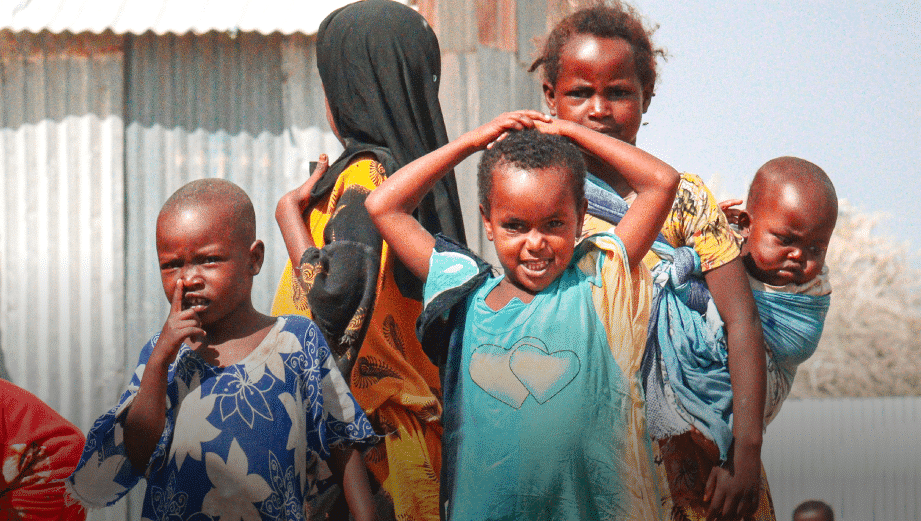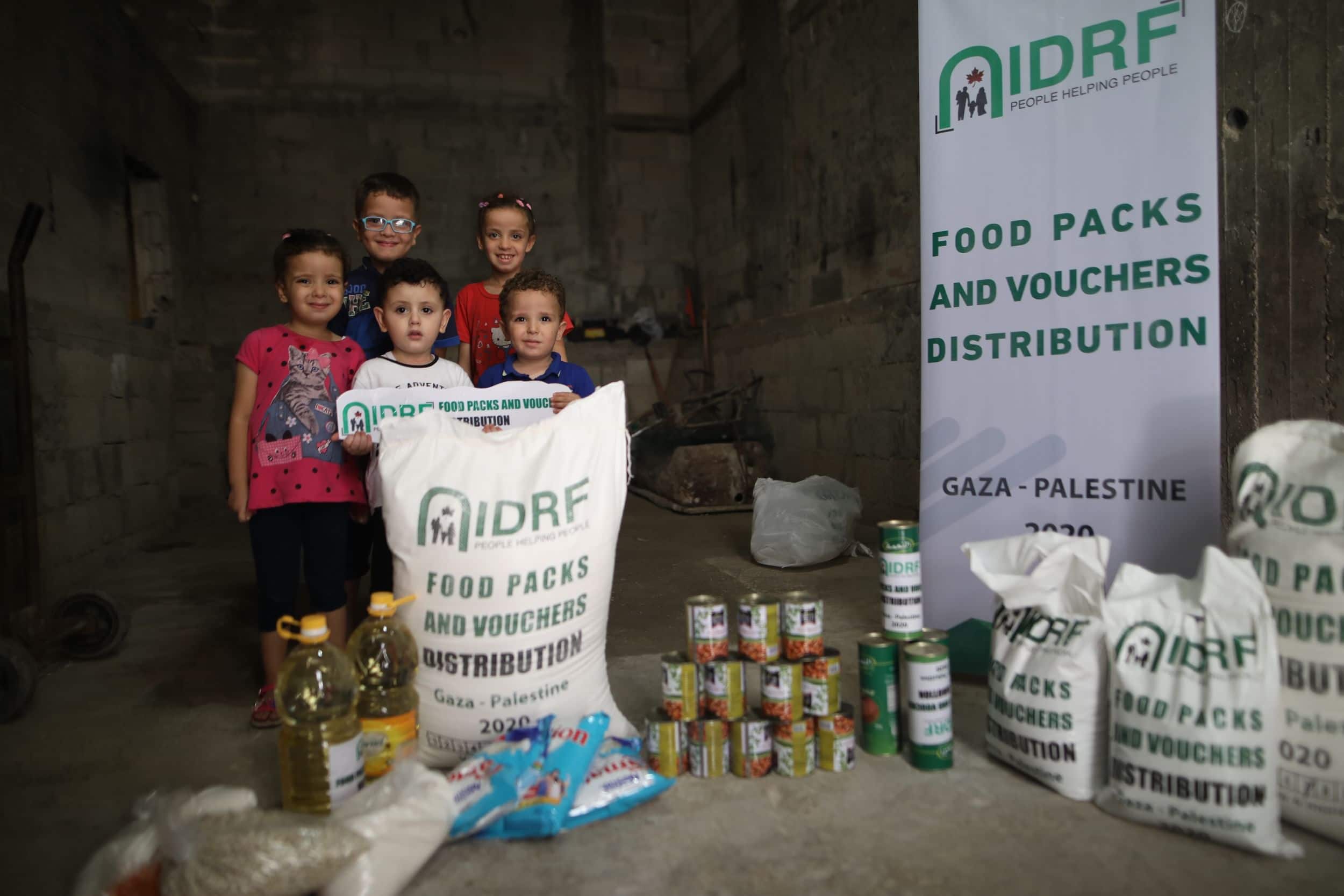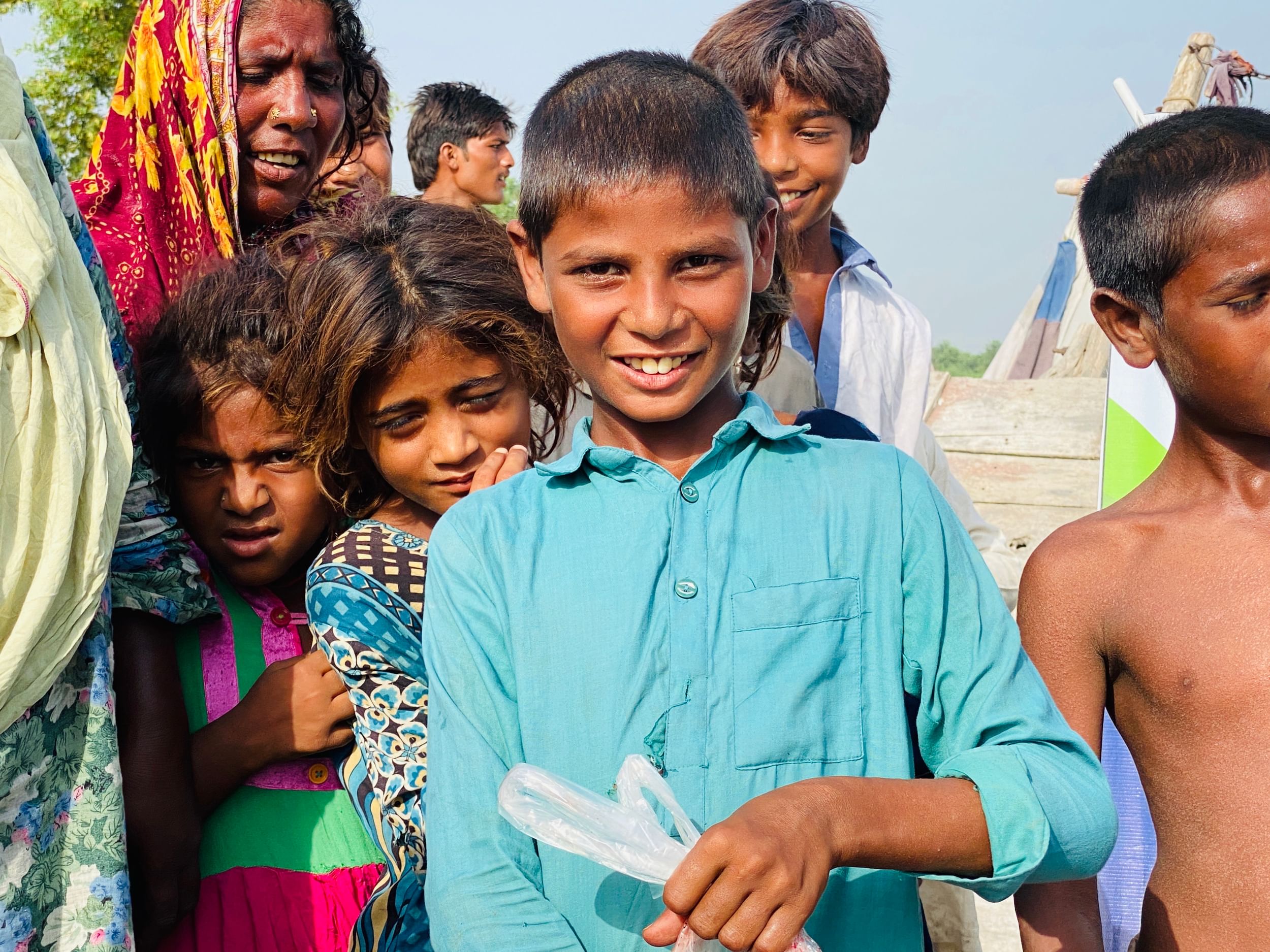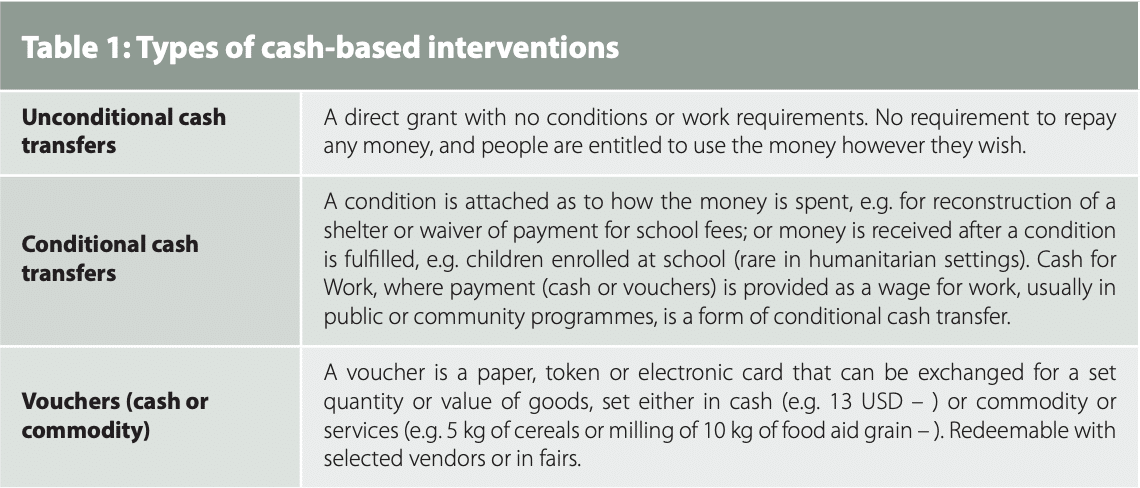According to the United Nations High Commissioner for Refugees (UNHCR), cash intervention programs are essential to creating sustainability against poverty and food insecurity.
Generally, people tend to be hesitant when providing cash to underprivileged communities, however, the humanitarian sector has been increasingly stepping away from this perspective in recent years.
The UNHCR has implemented cash-intervention programs since the 1990s and has seen an increasingly vast difference in the quality of life of the beneficiaries who are enrolled in cash-intervention programs as opposed to those who receive in-kind distributions.
Food aid is the predominant response during humanitarian crises, however, in recent years they have been subject to criticism and awareness has been made that providing the standard food items is not always the appropriate response.
The UNHCR and the humanitarian sector are now encouraging organizations to shift their focus towards providing cash and vouchers to their beneficiaries to encourage independence and sustainability.
The reality is that every family has different needs and each family needs to have the autonomy to make decisions for themselves. For example, a family could have different medical and dietary needs and a food box prevents them from receiving what is needed.
Media Hadi, IDRF’s Program Officer said, “One family’s needs don’t always match another family’s needs.” She continued, “Having cash interventions allows the beneficiaries and the impacted communities the freedom to spend the aid money where they need it most, whether that is food, water, medicine, transportation out of the region, shelter, etc.”
By giving beneficiaries the agency to choose where their expenses go, not only are they able to tackle their problems but they are also most likely to eradicate the need of relying on humanitarian organizations to meet their needs.
Some people often mistake that Cash-Interventions are just casual cash giveaways with no accountability for underprivileged communities, however, that is not the case.
There are multiple different kinds of Cash-Interventions.
What types of cash-based interventions are there?
Cash-based interventions can be divided into three broad categories.
Unconditional cash intervention
An unconditional cash intervention is a direct grant with no conditions or work requirements. The beneficiary has no requirement to repay any money, and the beneficiary is entitled to use the money however they wish.
At IDRF, we practice this unconditional cash intervention program in Somalia. In Somalia, 5.9 million people required humanitarian assistance in 2021 alone. The humanitarian crisis in Somalia is among the most complex and long-standing in the world. Insecurity, as well as recurrent climatic shocks, continue high levels of humanitarian needs. The threats of desert locusts, Covid-19 pandemic, mixed rains performance and droughts have exacerbated the fragile humanitarian situation.
In response, IDRF is providing unconditional cash transfers to 250 households for two months to help these beneficiaries stand on their own feet.

Vouchers (cash or commodity)
A voucher is a paper, token or electronic card that can be exchanged for a set quantity or value of goods, set either in cash or commodity or services. It is redeemable with selected vendors or in fairs.
In the past, IDRF has practiced the Voucher cash intervention program in Gaza. According to UNRWA, an estimated 68.5% of Gaza’s population is food insecure with 47% severely food insecure.
Recognizing this issue, last year IDRF launched a food distribution and food voucher program for families affected by food insecurity in Gaza. Approximately 600 households were able to participate in our food voucher program and improve their household food security.
Currently, IDRF also practices its voucher cash intervention program in Pakistan. Inflation rates in Pakistan have been on the rise for the past few years, however, they have dramatically increased during the pandemic. Approximately 40% of Pakistanis are currently living below the poverty line.
In response, IDRF is working in Tharparkar and Karachi. We are providing “Right Pay Food Cards” to impacted families that can be used at “Right Choice” utility stores where families can buy basic grocery items at an 8% – 12% discounted price compared to other neighbourhood shops.


Conditional Cash Intervention
Last but not least, there is conditional cash intervention. A conditional cash intervention is a cash transfer that has a condition attached as to how the money is spent, e.g. for the reconstruction of a shelter or waiver of payment for school fees; or money is received after a condition is fulfilled, e.g. children enrolled at school. Cash for Work, where payment (cash or vouchers) is provided as a wage for work, usually in public or community programs, is a form of conditional cash transfer.
Currently, IDRF does not operate any conditional cash interventions for its beneficiaries.
It is important for us as an organization that strives towards sustainable solutions to provide as much autonomy to our beneficiaries as possible. This is why we encourage our donors to donate to cash intervention programs to help us provide sustainable and long-term solutions.
“A great byproduct of these types of programming is it creates money pathways that shows us exactly where the funds go, allowing organizations to modify and enhance their existing programming based on where the beneficiaries spent their funds,” said Hadi.

